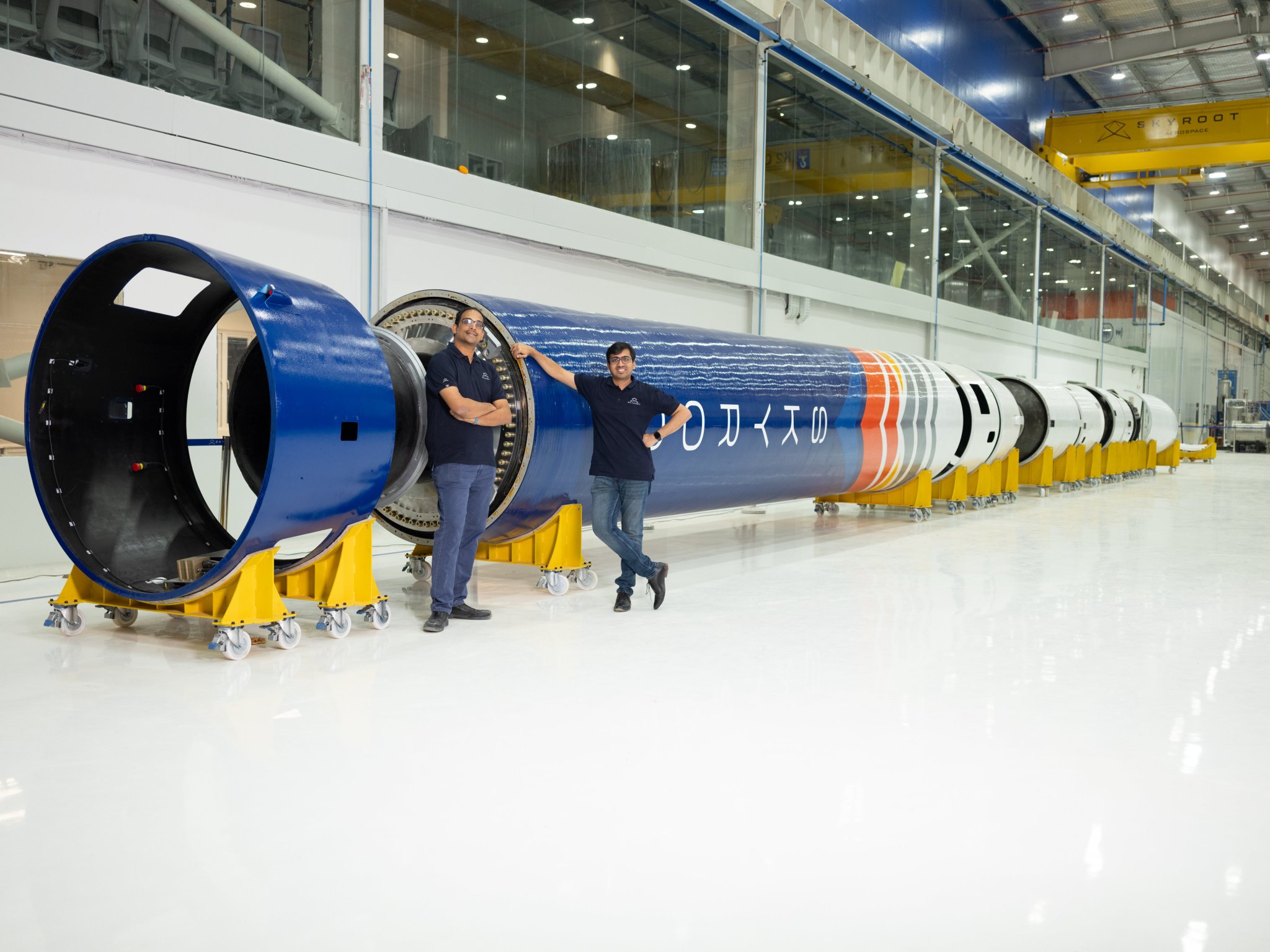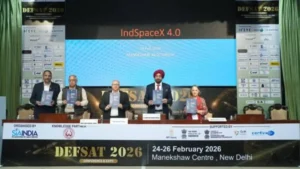In a momentous event for India’s space industry, Dr. Jitendra Singh, the Union Minister of Science and Technology, unveiled Skyroot’s Vikram-1 orbital rocket in Hyderabad on Tuesday, October 24th. With the hope of achieving a fully commercial launch in the later months of 2024, Skyroot’s co-founder and CEO, Pawan Kumar Chandana, has emphasized the partly commercial nature of Vikram-1’s inaugural launch.
Vikram-1: A Technological Marvel
Skyroot’s Vikram-1 is described as a “technologically advanced, multi-stage launch vehicle with a payload capacity of approximately 300 Kg to Low Earth Orbit. It is an all-carbon-fiber-bodied rocket equipped with 3D printed liquid engines.
Vikram-1: Advancing India’s Satellite Deployment Capabilities
Vikram-1 is designed to place multiple satellites into orbit, a first for India and one of the first globally. This rocket represents Skyroot’s second successful project following the Vikram-S rocket’s triumphant launch on November 18th, 2022. The Vikram-1 can be considered a scaled-up version of its predecessor.
Read Here: Vikram-S Rocket Launched By ISRO
Launch Schedule and Scope
Chandana, while not disclosing the exact month of the launch, has confirmed that the first full-fledged developmental test launch of Vikram-1 is expected in the early months of 2024. A proper commercial launch is anticipated in the later part of 2024. This timeline is crucial, especially in the context of the evolving global competitive landscape for satellite launches. As of 2024, more players are likely to enter this space, both globally and locally.
Funding and Financial Stability
Chandana revealed that Skyroot has raised approximately Rs 526 crore in funding. He confidently stated that this funding will support the company for the next few launches, with a substantial amount of Rs 400 crore having been secured just a year ago. This financial stability is pivotal as it enables the company to continue its ambitious plans and maintain its position as a pioneering private space launch provider.
The Future of India’s Space Economy
Dr. Jitendra Singh, the Union Minister of Science and Technology, expressed his optimism for the growth of India’s space economy. He cited estimates that project the industry to grow from its current $8 million to possibly $40 million by 2040, with some even suggesting it could reach $100 million by that time. This anticipated growth underscores the importance of India’s efforts in space technology and commercial space endeavors.
Skyroot’s MAX-Q: A State-of-the-Art Headquarters
Dr. Singh also inaugurated Skyroot Aerospace’s new global headquarters in Hyderabad, named MAX-Q. This facility is described as “the country’s largest private rocket development facility under a single roof.” MAX-Q is equipped with state-of-the-art infrastructure, encompassing integrated design, manufacturing, and testing facilities for space launch vehicles.
MAX-Q Headquarters: A Space for Innovation and Growth
The facility can accommodate the 300-member strong workforce of Skyroot and spans a substantial 60,000 square feet of built-up area, with future expansion plans in the pipeline. The headquarters boasts a futuristic space theme, symbolizing Skyroot’s commitment to pushing the boundaries of space technology.




 Kolli Hills Gets Tamil Nadu’s First Dark...
Kolli Hills Gets Tamil Nadu’s First Dark...
 Google Launches Nano Banana 2 Powered by...
Google Launches Nano Banana 2 Powered by...
 CERT-In, SIA-India Release New Space Cyb...
CERT-In, SIA-India Release New Space Cyb...








